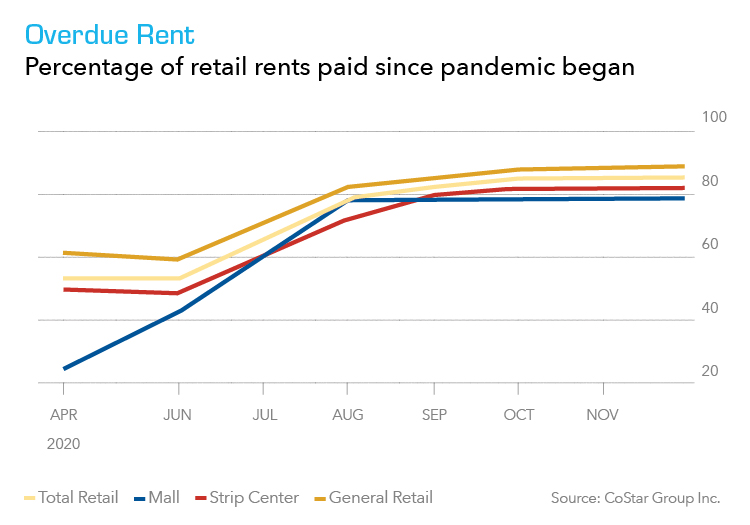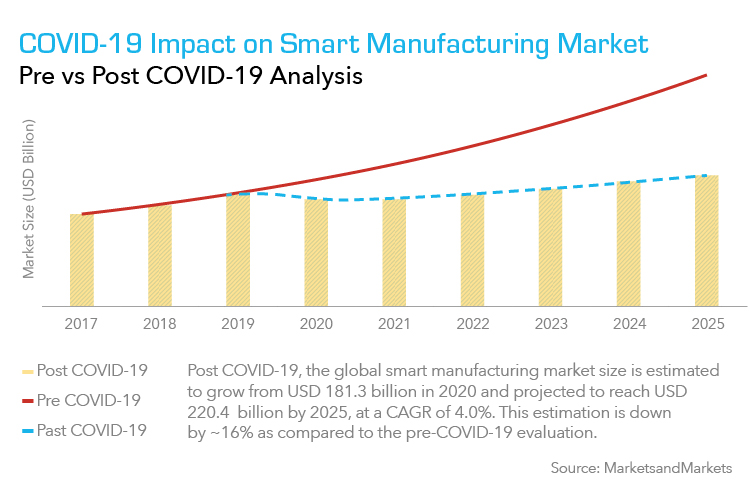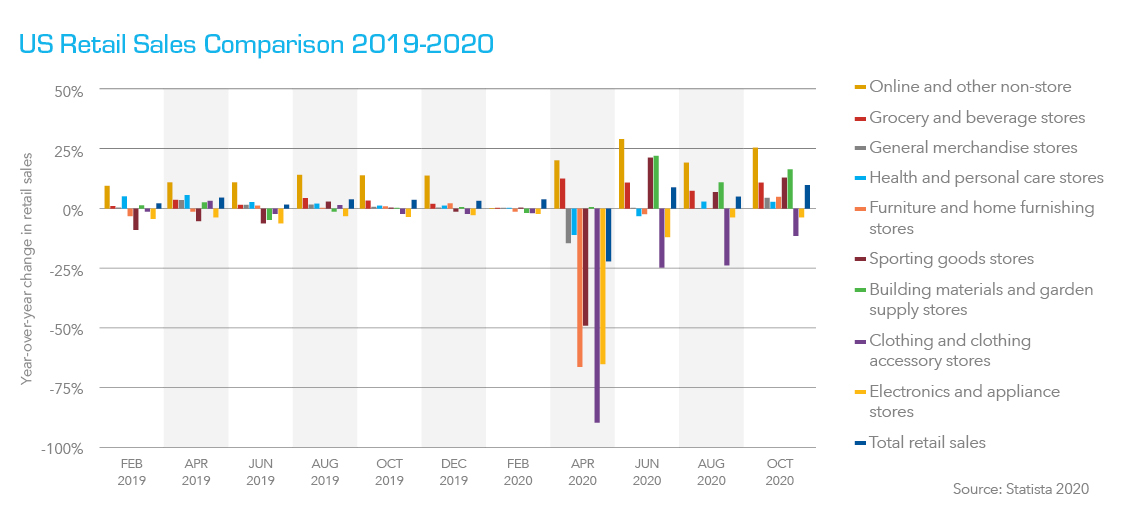The Trailing Impacts of COVID-19 Present a Window for Small Businesses and Landlords to Seek Commercial RE Property Tax Relief in 2021

The global pandemic is having a profound impact on the fortunes and future course of commercial real estate. As the year comes to an end, one of the critical questions on the minds of commercial property owners, both large and small, pertains to the impact of COVID-19 on property tax assessment in the new year and beyond.
Right now, we are seeing record numbers of renter delinquencies with many tenants asking for abatement or revision of existing agreements to single year leases. Vacancies continue to escalate as both large and small businesses close at a record pace. In some cases, this has been exacerbated as anchor tenants have departed regional malls, triggering occupancy “kick-out” clauses and enabling smaller tenants to escape their leases. As these tenants exit, customer volume to surrounding strip centers and other area businesses is diminished, further driving down revenue and the cycle perpetuates itself.
Currently, we believe there is a significant opportunity for the many thousands of U.S. restaurants, bars, stores, small industrial/manufacturing businesses which own their own real estate, and landlords themselves, to achieve property tax relief from their assessed valuations via the appeal process in the 2021 tax year. How much of a relief-based reduction one can expect and how reflective it will be of post-pandemic revenues, will be dependent upon numerous factors, starting with how well a property owner prepares for and navigates the appeals process.


The core argument in favor of property tax relief in 2021 for the 2020 tax year is predicated on the current “soft” market and a correlating, demonstrated reduction in business revenue, which in some cases is down 75% or more among retail and other small industrial and manufacturing businesses. This stems primarily from COVID-19 restrictions mandated and imposed by individual states and municipalities on customer and employee/worker capacity and in some cases mandatory closures of those businesses altogether for a period of time during the 2020 calendar year.
A restaurant or bar, for example, which has been unable to operate at greater than 25% to 30% of total capacity over the past many months, is also likely to have generated only a small percentage of its pre-pandemic revenue. Similarly, a light manufacturing business may have been unable to meet its customer’s required production levels with fewer than needed workers on the floor. Conversely, based on reduced demand for its products in the market due to the pandemic, the customer may no longer have sufficient demand for the manufacturer’s services. In both cases, the impact would be marked declines in its revenues that can be quantified as part of the diminished value of the real estate.
According to the Deloitte 2021 Manufacturing Industry Outlook, the recovery to pre-pandemic levels may be lengthy, with projections based on the Oxford Economic Model (OEM) anticipating a decline in annual manufacturing GDP growth levels for 2020–2021 with a forecast of -3.7% for 2020 and -5.4% for 2021. And despite gains since much of the country’s manufacturing base restarted operations, employment levels as of October 2020 were still 621,000 lower than in February before the impacts of COVID-19 were felt in the U.S.

Landlords, too, are in much the same boat as their own tenants who, as mentioned earlier, have been seeking lease relief since early on in the COVID-19 crisis back in spring of 2020. For landlords, the successful appeal for value relief on properties in their portfolio can be pivotal in extending the relief needed to support pivotal tenants during the course of the current crisis.
Given the potential reduction opportunity that the trailing impacts of the pandemic dating back to March of 2020 currently present, close coordination between a property owner’s executive management or accounting team member and a national property tax consultant firm is strongly recommend. Leveraging this type of expertise during the current period is perhaps more important than ever before as they possess the resources and tools to access and analyze real-time market data, and are expert at building a compelling case and delivering a thorough argument for reduction that leverages insights and knowledge that go well beyond obligatory supporting income, expense, rent roll and other information.
From smaller businesses to large companies, remaining current and timely in the appeals process is important. The time, discipline and internal resources needed to prepare and file even just a few property tax appeals in a timely manner to meet statutory deadlines can be significant; for corporations with significant real estate assets, it can be truly burdensome. And as the size of a business real estate portfolio increases, the exponential impact of efforts that fall short, no matter how well-intentioned, can well outpace what might have been spent to ensure a successful outcome.

With sales and transactions down significantly across the country, whether you are a small business and own your own commercial property or are a landlord with tenants who’s revenue suffered in 2020 vs. previous years, you may well be entitled to tax relief and it is important to start the process as soon as possible. The appeal deadline process begins in most states starting on January 1, 2021 and taxes will be assessed based on a determination of the value of your property as of either this date or the appeal date specific to your area. To assess your position, benchmark values, compile a thorough analysis and file with the tax authority in a timely manner will require a period of from 30-45 days. With this in mind, we urge you to begin the process now.
At Hilco, we are recognized leaders in real estate value maximization. Within Hilco Valuation Services is a group of experienced consultants who specialize in helping clients reduce their business real estate property tax as well as their business personal property tax. As one of the world’s largest and most diversified business asset appraisers, field examiners and valuation advisors, it would be difficult to name an industry that Hilco has not served, an asset category we have not appraised, or a valuation service we have not provided. And unlike most providers who are first and foremost tax or accounting specialists, Hilco’s core business is real estate. This means that we not only understand real estate at an enhanced level but also that our tax clients benefit from the many efficiencies associated with having access to our expert, full time staff who regularly conduct appraisals, lease negotiation and more, and whom we leverage regularly to deliver due diligence and analysis on behalf of those clients.
Our team is presently working with small businesses and landlords across the country to quantify and secure the relief to which they are entitled based on the true value of their property in 2021. If your tax liability is in excess of $100,000, we encourage you to reach out to us today for assistance with your appeal. Doing so will help you to maximize your potential for a successful outcome in the coming year.
Representing clients and their properties in 40 states, the Hilco Property Tax Advisory practice led by Frank Lima has successfully appealed and achieved value reductions in key taxing jurisdiction across the U.S. Over the past three years (2017-2019), Hilco achieved an average tax reduction of 22.25% on behalf of its Advisory clients. The practice has vast experience with Data Centers, Healthcare, Hospitality & Gaming, Industrial & Manufacturing, Media, Multi-Family, Senior Housing, Office Buildings, Retail and Business Personal Property and more. By applying its extensive tax management and administrative capabilities, the Hilco Property Tax Advisory practice relieves companies of the significant burden of property tax mitigation, enabling them to focus on their core business with the confidence of a trusted advisor at their side.



